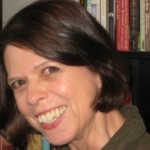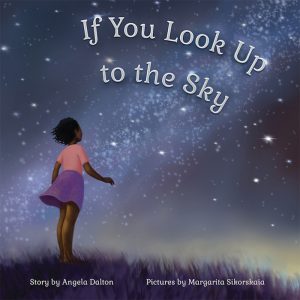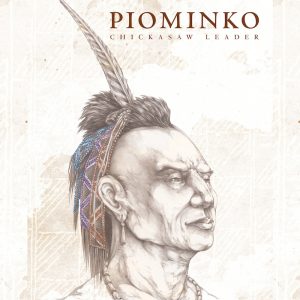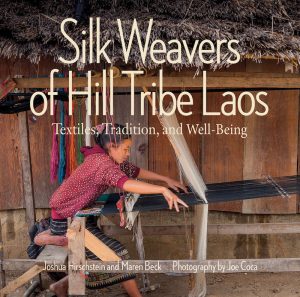PUBLISHED JULY/AUGUST 2018
by
Deb Vanasse, Reporter,
IBPA Independent magazine --

Deb Vanasse
Are independent publishers making strides toward engaging more diverse audiences?
IBPA asked a sample of IBPA Benjamin Franklin Award™-winning authors and publishers to weigh in on diversity and inclusion in the publishing industry. Here's what they had to say.
Goodreads, Kirkus Reviews, and The Millions named Mira Jacob’s debut novel,
The Sleepwalker’s Guide to Dancing, one of the best books of 2014. When
Publishers Weekly followed up by asking Jacob to keynote an event honoring young industry stars, the East Indian American author decided to focus her remarks on the challenges faced by writers of color.
She wasn’t heard. When the sound system faltered, half the audience turned their backs and talked among themselves as Jacob stood on a chair and shouted her remarks, an experience that graphically illustrated her point.
“You will ignore us at your peril—to the industry’s peril,” she says in, “I Gave a Speech to the Publishing Industry and No One Heard Me,” published by BuzzFeed. If nothing else, it’s a matter of business sense, Jacob says. “There is a vast, untapped audience out there,” she notes. “You need to get to us.”
As evidenced by
titles that took top honors in several categories of this year’s IBPA Benjamin Franklin Awards™, independent publishers are making strides toward reaching this audience, releasing top-notch titles by and about people of color. We asked a sampling of these award-winning authors and publishers to weigh in on the topic of diversity in the publishing industry.

Testify
Gold Winner in Poetry
Author: Douglas Manuel
Publisher: Red Hen Press
“As I drafted and edited the poems in
Testify, I realized how powerful of a role race plays in my imagination, how much race affects everything about me, how it’s seeped into my bones, how I inhale and exhale it, despite race being a fetish and a fiction,” says author Douglas Manuel. “Being black is the house I reside in, being black is the house I hide in, being black is the house I can’t escape, that I used to want to escape, that I would never leave now.”
Describing Manuel’s book as “a brave, brilliant debut about the African-American experience in the Midwest” and “a contemplation of race, masculinity, religion, and class that confronts critical issues in society,” marketing director Tobi Harper notes that Red Hen Press emphasizes diversity. “We work to expand the diversity of voices in our submissions by creating awards and imprints for women, queers, Latinx writers, Alaskans, and more,” he says. “We do our best to fill cultural and regional gaps in our catalog by networking and constantly improving our outreach and visibility.”
Readers are always looking for diverse voices, Harper notes, and independent publishers are well-positioned to satisfy the demand. “We are looking for the new and innovative works that the Big Five can’t afford to gamble on,” he explains. “Independent publishers are gamblers, and we bet on what we know 10,000 [people] will love. We don’t have to focus on what a million people will like.”
Defining his audience, Manuel says he writes for his best reader. “When I say best reader, I mean the person who needs my poetry at that moment,” he explains. “I mean the person who had been waiting to hear what I had to say; I mean the person who needs the spurring that some of my poems offer,” he says. “I mean the person who felt alone before they read my work; I mean the person who saw herself/himself/themselves in my work; I mean the person who could hear the song I’m singing before they ever read my work.”
Counting himself lucky to be writing in an America that is “the most non-white and non-male it has ever been,” Manuel recognizes who broke trail ahead of him. “They fell on swords, knocked down doors, and really fought for the world I write in now,” he says. But even as book award lists and changes in editorial staffing affirm that the industry is changing, he says there’s more to be done.
Publishers who want to publish more diverse voices should make their missions known, Harper says. “Go out to schools and MFA programs and look for talent. Create awards, or at least calls for open submissions,” he suggests.
“We’re out here,” Manuel says. “We’re out here working, creating, and living. The publishing world just needs to come find us.”

If You Look Up to the Sky
Gold Winner in Best New Voice/Children’s/Young Adult
Silver Winner in Children’s Picture Book (4 – 7 years)
Author: Angela Dalton
Publisher: Beaver’s Pond Press
Lily Coyle, director of publishing at Beaver’s Pond Press, lauds the universality of
If You Look Up to the Sky, which conveys a message of hope that originated in wisdom shared by the author’s grandmother. “The main character could be any person, any gender, any race,” she says. “And that’s a rare thing when so many non-white characters only exist to fill in the gaps of the white experience while the ‘universal’ stories tend to be populated by white faces.”
Angela Dalton affirms that it was hard for her, as a black child, to find books that represented who she was—her voice and experience, her culture and community. “It’s a big, huge world,” Dalton says. “Girls of color deserve a place in it.”
Dalton notes there’s currently a resurgence of the black voice, but she adds that barriers of finances, resources, and connections can be hard to surmount. “Publishing is a small and contained industry,” she says. “It’s hard to break in, and gatekeepers are doing business as they’ve always done it.” Independent publishing, she says, can be a happy exception.
Coyle concurs, citing a few of the hybrid publisher’s many titles on non-mainstream topics: a book for children who celebrate both Hanukkah and Christmas, a book about a Somali tween adapting to Minnesota winters, a book about an Iranian child’s first fishing trip, and a bestselling Guatemalan cookbook.
“Indie publishers don’t need a bunch of surveys to determine if something is marketable, because we’re not rolling out endcaps nationwide on release day,” Coyle says. “We fly under the radar, meaning we can be there for audiences who may not be perceived to dominate the population but are very hungry and eager to be served.”
But Coyle also acknowledges that publishing is in what she calls a “weird zone,” in which the lack of representation is coupled with concerns about the problems of appropriation. “The talent and the voices are absolutely there, but the pipeline hasn’t been nurtured,” she says.
Dalton’s expertise in digital marketing has helped her reach the book’s audience. Still, she says it’s an uphill battle. “Distribution channels into certain neighborhoods, especially urban neighborhoods, are really hard,” she remarks, adding that booksellers like Mahogany Books in Washington, D.C., and the Afro-Latina-feminist bookstore Café Con Libros in New York are making inroads.
Despite the challenges, the author is committed to encouraging other writers of color. “Jump in with both feet,” she urges. “Tell your story, get it on paper. Everybody’s story is important.”

Piominko: Chickasaw Leader
Silver Winner in Biography
Authors: Thomas W. Cowger and Mitch Caver
Publisher: Chickasaw Press
The publisher of
Piominko is Chickasaw Press, a Native American tribal press established as a way of helping Chickasaws own their history. Neither of the book’s authors, however, are Chicksaw.
Questions of appropriation inevitably arise when authors aren’t of the same race or ethnicity as the people they write about. Addressing this concern in the book’s foreword, Chickasaw Governor Bill Anoatubby notes that Caver and Cowger have spent much of their lives learning his people’s history and culture.
“Being Caucasians, both Dr. Cowger and I knew we needed to consult Chickasaw tribal members to assure the cultural aspects of our book were respected,” Caver says. The pair sought tribal input to make sure the book’s facts and perspective were as culturally correct as possible. They also submitted the manuscript for review by the Culture and Humanities Department of the Chickasaw Nation.
As biographers of a Chickasaw leader who dined with George Washington and helped prevent Spain from gaining control of Middle America, Caver and Cowper knew their audience would include many tribal members. At the same time, they recognized the book would appeal to a wider audience.
“There seems to be a renewed interest in Native American history that at one time was suppressed,” Caver says. “With the advent of the Chickasaw Press, which is a tribal-owned publishing firm, there are more opportunities for publishing books that present more diverse voices.”

Silk Weavers of Hill Tribe Laos: Textiles, Tradition and Well-Being
Gold Winner in Travel
Authors: Joshua Hirschstein and Maren Beck
Publisher: Thrums Books
Thrums Books is the publishing arm of a group that works to create opportunities to support indigenous textile artisans around the world. “We actively seek authors who come from or are deeply embedded in the cultures of developing and emerging countries,” says associate publisher Karen Brock. “Inherent in our objective is the desire to create opportunities for authors to tell the stories of valuable, little-known, and often disappearing cultural traditions.”
Though not Laotian, authors Joshua Hirschstein and Maren Beck wrote
Silk Weavers of Hill Tribe Laos after visiting the same Hill Tribe communities for 15 years. “We have a respected comfort with the people,” Beck says. “It takes a while to build trust and affection.”
Brock cites this “high level of personal connection” as a major strength of the book, which in addition to the IBPA Benjamin Franklin Award has been nominated for a 2019 Pacific Northwest Booksellers Association award.
The audience includes both textile enthusiasts and those who enjoy reading about unique cultures, Beck says. “The book delves deeply into both the traditional silk weaving culture and weaving methods,” she explains. “We [also] bring readers right into the village with us, introducing 15 local personalities and offering some of our travelers’ tales that explore the region’s pervasive feeling of well-being.”
Specialty books like
Silk Weavers of Hill Tribe Laos may not be well-suited to publishers with strong profit goals, Brock admits, noting that the core markets are small and not always easy to reach. “But each book we publish affords an opportunity to discover and reach a new group of readers who have interest in that specific culture or tradition,” she says.
Co-founder of 49 Writers and founder of the author co-op Running Fox Books, Deb Vanasse is the author of 17 books. Among her most recent are the novel Cold Spell
and a biography, Wealth Woman: Kate Carmack and the Klondike Race for Gold.
She also works as a freelance editor.
If you're interested in reading more about diversity in publishing, check out this
IBPA Independent article:
"A New Chapter in African Writing."